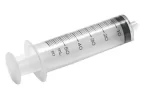Wow, me too bro! HCT was 61 on only 400mg/wk. Now it's at 50 and getting lower. Takes a while.
I digress, lol, OP's thread is regarding conversion to shorter ester for frequent admin... that, IMO, is a good move. I've read many anectodal reports frequent lower dosing helps stabilize bloods, and it's working for me as well.
Unless the plan is to manipulate test results, I agree, keep hydration consistent with average daily consumption. But IMO, a lot of water should be injested daily anyway... at least 1.5 gallons/day, especially if you have RBC/H&H issues. Additionally, higher water intake is conducive to protein synthesis, and of course, many other benefits.
Regarding CBC (blood) panels—as I
believe
@readalot is eluding:
—the date of the "draw" versus the date of the "report" is going to affect the level of Hematocrit (HCT). The longer the duration, the higher the HCT will rise. It's roughly 1% every 2.5 days. So hypothetically, if you "draw" today (HCT is 50) and "report" (or lab test) is on Wednesday, the HCT will likely show higher at 52.
Also, for CBC panel you do not need to fast. Fasting is necessary for Metabolic Panels, "Kidney" panels, Glucose, Insulin, and some others.





